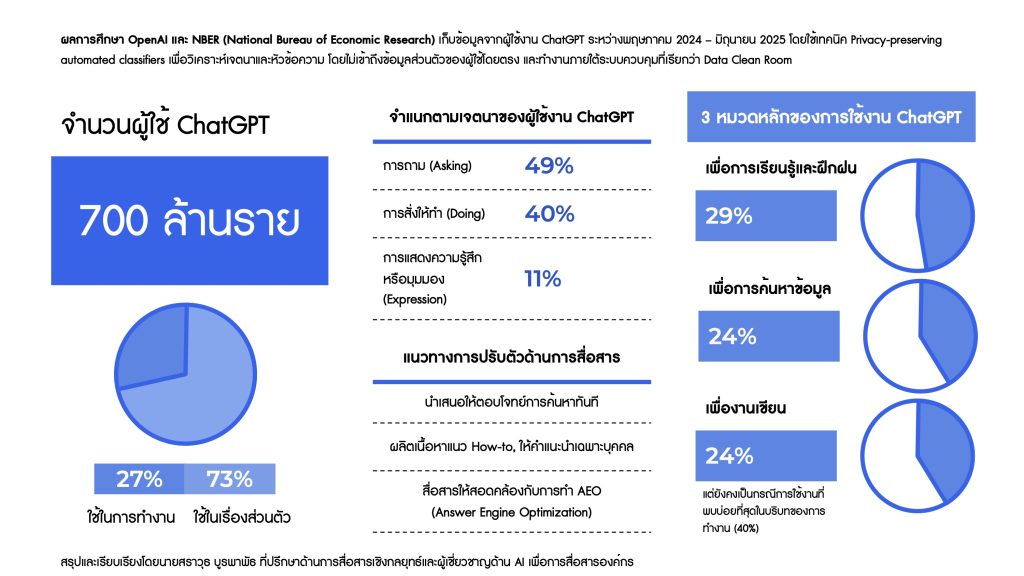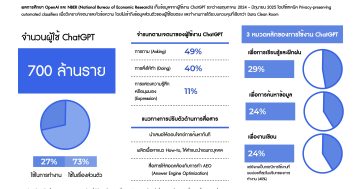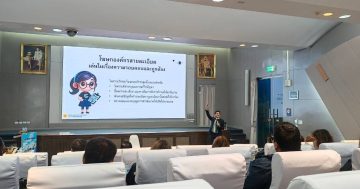Artificial intelligence is redefining the communications landscape, with new global research by OpenAI and the National Bureau of Economic Research (NBER) showing that over 700 million people worldwide now rely on ChatGPT primarily as a “thought partner and editor” rather than a simple content generator. Experts warn that corporate communicators must urgently upgrade their skills in prompt engineering and adopt Answer Engine Optimization (AEO) strategies to stay relevant in the AI era.
“The role of communicators has shifted far beyond content creation,” said Sarawut Burapapat, Strategic Communication Advisor and AI-for-PR Specialist. “Research confirms that if organizations use ChatGPT critically and strategically, it can deliver significant value at the enterprise and societal level.”

According to the findings, 40% of work-related ChatGPT prompts involve writing tasks, with usage rising to 52% among managers and business professionals. However, most users are not generating new content. Instead, they are editing, refining tone, summarizing, or translating text—two-thirds of total use—signaling ChatGPT’s emergence as a content enhancer rather than a mere producer.
The NBER analysis further revealed that 49% of inputs are framed as questions, with users seeking guidance and decision support rather than issuing direct instructions. This reflects the communicator’s evolving role as an advisor to executives and organizations, bridging data insights with strategic counsel.
“Today’s communicators are no longer just writers. They are becoming Editors and Enhancers of organizational messages,” Mr. Sarawut added. “ChatGPT can fine-tune tone, summarize key points, translate messages in line with brand strategy, and even help draft executive speeches for critical occasions.”

The study also highlights growing adoption of ChatGPT for learning and professional training (29%), such as exploring CSR concepts or simulating crisis communication scenarios. Meanwhile, search-related use has increased from 14% to 24%, while writing as a share of activity declined from 36% to 24%, showing a shift from “content producer” to “thinking assistant.”
Mr. Sarawut concluded: “Communicators must adapt to instant-answer environments and produce more how-to content while aligning strategies with AEO. If applied responsibly, AI is not just an intelligent assistant but a catalyst that amplifies the strategic value of communicators across organizations and society.”
The research was conducted between May 2024 and June 2025, using privacy-preserving automated classifiers to analyze intent and topic without accessing personal user data, safeguarded under a data clean room framework.



